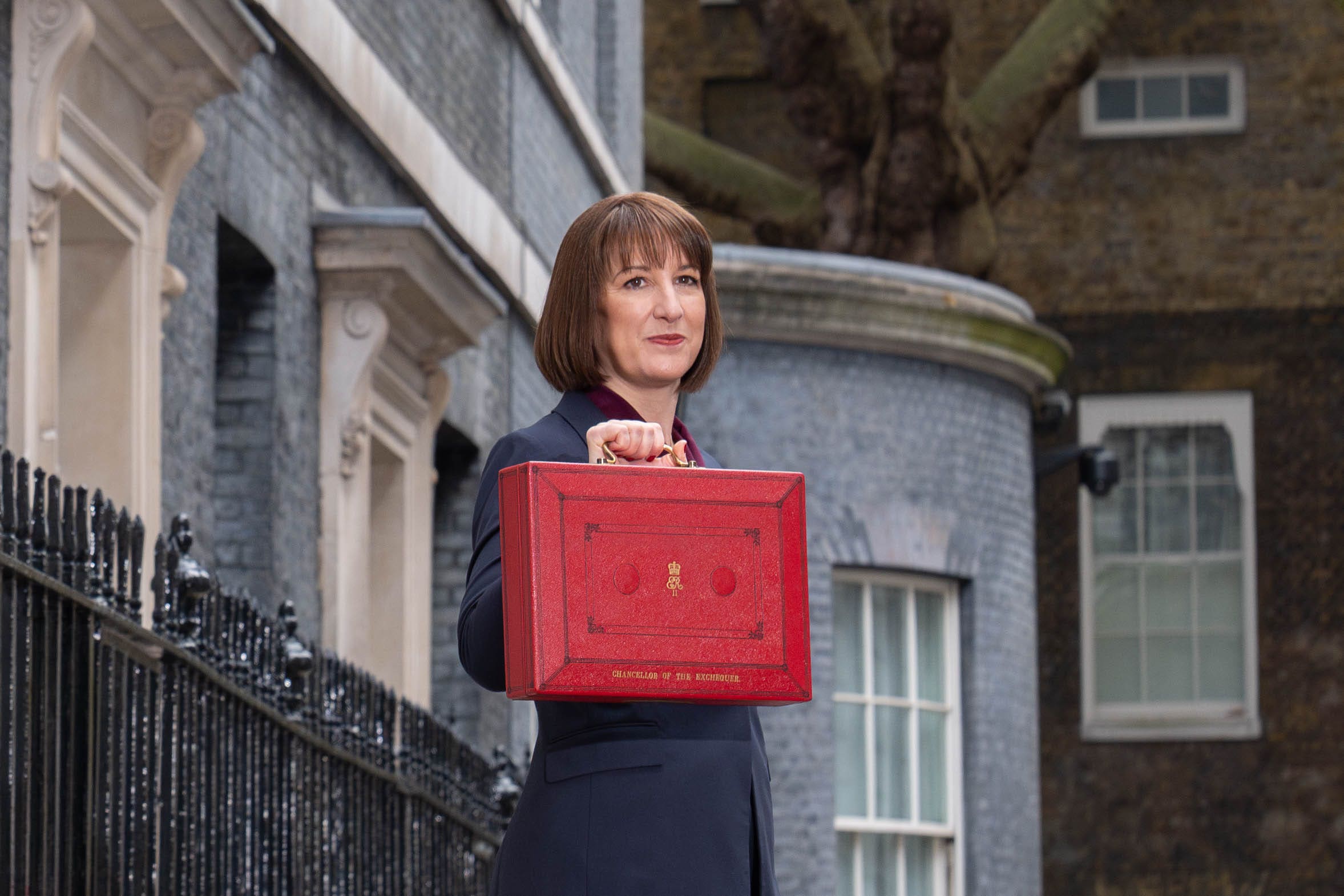Fact check: Budget 2024 claims about National Insurance, bus fares and growth
Round up of fact checks about the Autumn Budget 2024, compiled by Full Fact.

Your support helps us to tell the story
From reproductive rights to climate change to Big Tech, The Independent is on the ground when the story is developing. Whether it's investigating the financials of Elon Musk's pro-Trump PAC or producing our latest documentary, 'The A Word', which shines a light on the American women fighting for reproductive rights, we know how important it is to parse out the facts from the messaging.
At such a critical moment in US history, we need reporters on the ground. Your donation allows us to keep sending journalists to speak to both sides of the story.
The Independent is trusted by Americans across the entire political spectrum. And unlike many other quality news outlets, we choose not to lock Americans out of our reporting and analysis with paywalls. We believe quality journalism should be available to everyone, paid for by those who can afford it.
Your support makes all the difference.This roundup of claims has been compiled by Full Fact, the UK’s largest fact checking charity working to find, expose and counter the harms of bad information.
On Wednesday, the chancellor Rachel Reeves delivered Labour’s first Budget in 14 years. Full Fact has checked a number of claims made by the chancellor and outgoing Conservative leader Rishi Sunak, who responded for the Opposition.
Has Labour broken its National Insurance commitment?
The single biggest tax raising measure outlined in the Budget was an increase in employers’ National Insurance contributions (NICs), which the Office for Budget Responsibility (OBR) says is expected to raise around £25 billion a year by 2029/30 (before accounting for the indirect effects of the policy).
Changes to employer NICs include a 1.2 percentage point rate increase, a reduction in the threshold at which employers begin paying NICs from £9,100 to £5,000 a year and an increase in the Employment Allowance.
Ms Reeves claimed that in setting out the Budget Labour had kept “every single commitment that we made on tax in our manifesto”. But in his response Mr Sunak claimed the Budget “raises tax on working people by increasing National Insurance and breaking Labour’s promise”.
Exactly what Labour promised on tax prior to the election has been disputed, with politicians offering different interpretations of what the party’s manifesto pledge on National Insurance actually meant.
The manifesto said: “Labour will not increase taxes on working people, which is why we will not increase National Insurance, the basic, higher, or additional rates of Income Tax, or VAT.”
In recent weeks Labour has argued this commitment to “not increase National Insurance” applied to “working people” but not employers, with ministers saying it meant that people wouldn’t see higher taxes on their payslips. It’s also been noted that during the election campaign the Conservatives themselves warned that Labour had only ruled out rises to employee, not employer, National Insurance contributions.
But Labour’s manifesto didn’t explicitly specify that the commitment applied only to employee National Insurance, leading Institute for Fiscal Studies director Paul Johnson to say earlier this month that increasing employer NICs seemed to be a “straightforward breach of a manifesto commitment”.
It’s also worth noting that in some interviews ahead of the election Ms Reeves did not appear to make it clear that Labour’s commitment not to increase National Insurance only applied to employee NICs.
While an increase in employer NICs doesn’t directly increase the amount workers pay in tax, the OBR forecasts that much of the cost will be passed on to employees through lower real wages, thereby reducing the overall amount raised by the measure after accounting for its indirect effects.
Bus fares
Elsewhere in her speech Ms Reeves claimed the previous government’s policy was “for the bus fare cap to end this December”.
It’s true that before the general election the £2 bus fare cap in England had been due to end in December. But it’s important to note that in their manifesto prior to the election, the Conservatives pledged to extend this cap and keep it at £2 “for the entirety of the next Parliament”.
Under measures announced in Wednesday’s Budget, the £2 cap on single bus fares will now be replaced with a £3 cap for the whole of 2025.
Growth forecasts
Responding to the Budget, Mr Sunak said the OBR “has forecast growth is going to be lower under this government than it was forecast to be under the Conservatives”.
But this doesn’t give the full picture.
The OBR forecasts the economy will grow by 1.1% this year, up 0.4 percentage points from its previous forecast in March when the Conservatives were still in government. It also forecasts higher growth of 2% in 2025, up 0.1 percentage points from its March forecast.From 2026 to 2028 it is true lower growth is now forecast compared to what was forecast in March. The OBR predicts growth in 2026 will be 1.8% (down 0.2 percentage points from the March forecast) and in 2027 and 2028 will be 1.5% (down 0.3 and 0.2 percentage points in each of those years respectively).
But it goes on to say “the net economic effect of measures announced at this Budget on the level of output, assuming they are permanent changes which are maintained in the long run, begins to turn positive from 2032-33 onwards”.
For more, see Full Fact’s full round-up of Budget 2024 claims.